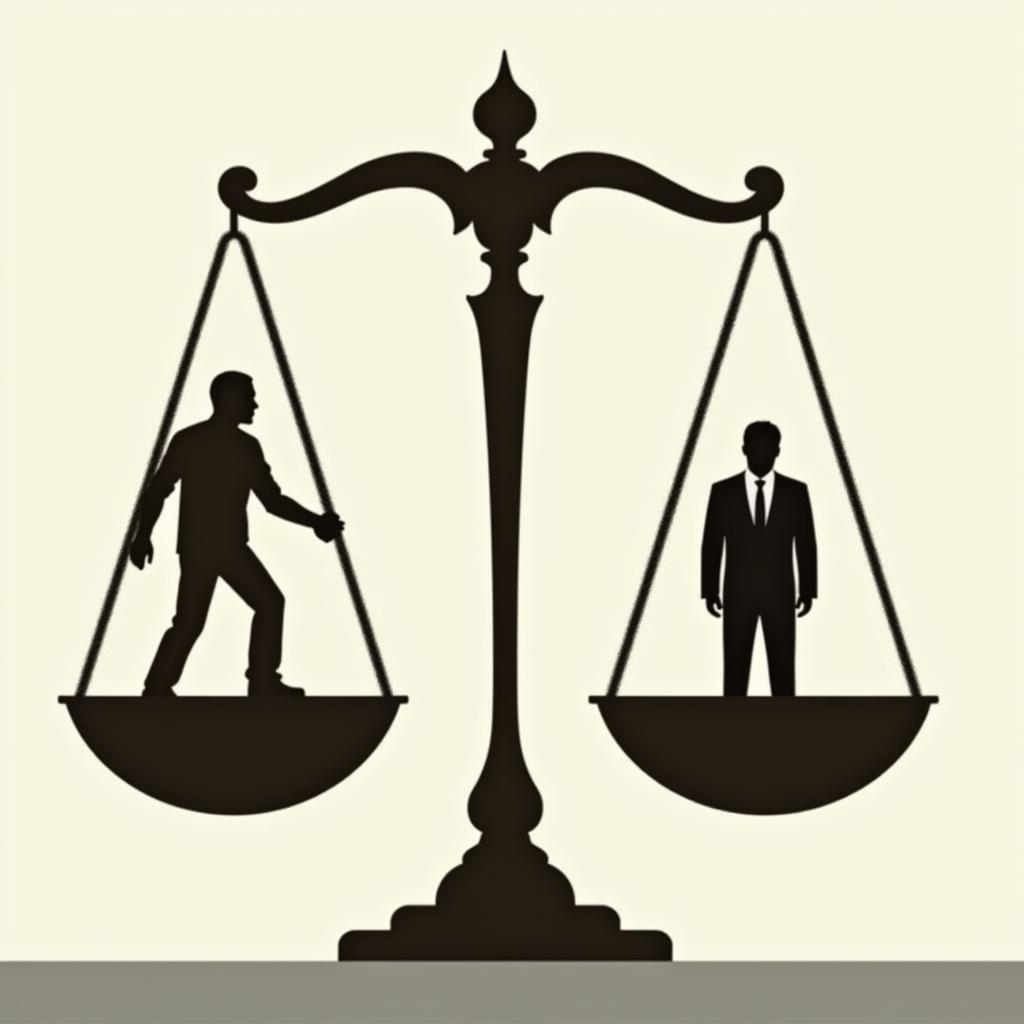Criminals thrive on the indulgence of society’s understanding, exploiting our empathy and desire for rehabilitation to further their own agendas. This complex relationship between societal compassion and criminal behavior requires careful examination to ensure that our pursuit of justice is balanced with a commitment to restorative practices. How can we create a system that acknowledges the root causes of crime while holding individuals accountable for their actions? This article will explore the delicate balance between understanding the factors that contribute to criminal behavior and ensuring the safety and security of our communities.
The Delicate Balance Between Understanding and Accountability
When we talk about criminals thriving on the indulgence of society’s understanding, we are not advocating for a complete dismissal of empathy. Understanding the underlying social, economic, and psychological factors that contribute to criminal behavior is crucial for developing effective crime prevention strategies. However, understanding cannot be an excuse for avoiding accountability. We must differentiate between explaining behavior and condoning it. Justice requires holding individuals responsible for their actions, regardless of their background or circumstances.
The Pitfalls of Misplaced Empathy
While empathy is a valuable human trait, it can be manipulated and exploited by those who seek to avoid consequences. Criminals thrive on the indulgence of society’s understanding when it becomes a shield against accountability. This can manifest in various ways, from lenient sentencing to a reluctance to acknowledge the harm caused to victims. The focus can shift from the victim to the perpetrator, creating an environment where criminals feel emboldened and victims feel unheard.
 Misplaced Empathy in the Criminal Justice System
Misplaced Empathy in the Criminal Justice System
How Society’s Understanding Can Be Exploited
Criminals often utilize narratives of hardship and victimhood to gain sympathy and manipulate public opinion. They might point to difficult childhoods, poverty, or systemic inequalities as justifications for their actions. While these factors can contribute to a person’s likelihood of engaging in criminal behavior, they do not excuse the behavior itself. Failing to recognize this distinction can lead to a cycle of enabling, where criminals are repeatedly given second chances despite a lack of genuine remorse or rehabilitation.
Recognizing Manipulation and Holding Offenders Accountable
It’s essential to develop critical thinking skills to recognize when empathy is being manipulated. We must ask ourselves: Is the offender taking responsibility for their actions? Are they demonstrating genuine remorse? Are they actively working towards rehabilitation? These are crucial questions to consider when determining appropriate responses to criminal behavior. Holding offenders accountable does not negate the need for compassion; rather, it creates a framework within which true rehabilitation can occur.
Fostering a System of Restorative Justice
The challenge lies in creating a system that balances accountability with restorative justice. This means holding offenders responsible while also providing them with opportunities for rehabilitation and reintegration into society. It requires a multi-pronged approach that addresses the root causes of crime, provides support for victims, and offers meaningful pathways for offenders to change their behavior.
Building a Safer and More Just Future
Moving forward, we must focus on building communities that prioritize both justice and compassion. This requires investing in social programs that address poverty, inequality, and mental health issues. It also means strengthening victim support services and creating opportunities for restorative justice practices that bring together offenders, victims, and community members to address the harm caused by crime. By focusing on both accountability and restoration, we can create a safer and more just future for all.
 Restorative Justice and Community Healing
Restorative Justice and Community Healing
Conclusion
Criminals thrive on the indulgence of society’s understanding when it becomes a substitute for accountability. We must strike a balance between empathy and justice, recognizing that true rehabilitation requires both understanding and taking responsibility. By fostering a system that prioritizes restorative justice and addresses the root causes of crime, we can break the cycle of criminal behavior and build a society that is both compassionate and safe.
FAQ
- Does understanding a criminal’s background excuse their behavior? No, understanding the factors that may have contributed to criminal behavior does not excuse the behavior itself. Accountability is essential for justice.
- How can we prevent criminals from exploiting societal empathy? By developing critical thinking skills and focusing on whether offenders are taking responsibility for their actions and actively working towards rehabilitation.
- What is restorative justice? Restorative justice is an approach that focuses on repairing the harm caused by crime by bringing together offenders, victims, and community members.
- How can we create a more just and compassionate society? By investing in social programs, strengthening victim support services, and promoting restorative justice practices.
- What role does accountability play in rehabilitation? Accountability creates a framework within which true rehabilitation can occur. It requires offenders to acknowledge their actions and take responsibility for the harm they have caused.
- Can empathy and accountability coexist? Yes, empathy and accountability are not mutually exclusive. A just system should incorporate both.
- How can we balance understanding and accountability in the justice system? By recognizing the importance of both understanding the root causes of crime and holding individuals responsible for their actions.
Need Support?
If you need support, please contact us at Phone Number: 02043854663, Email: [email protected] Or visit us at: Zone 34, Bac Giang, 260000, Vietnam. We have a 24/7 customer service team.